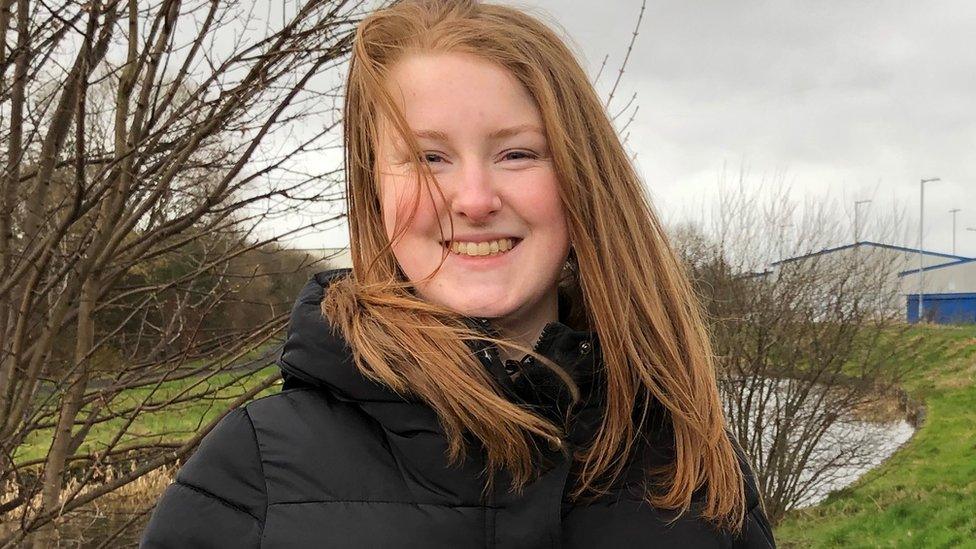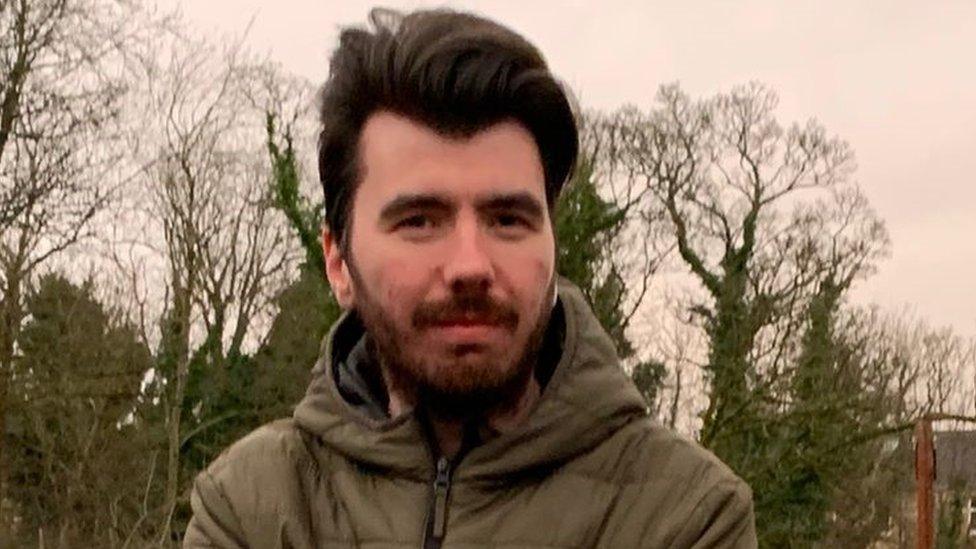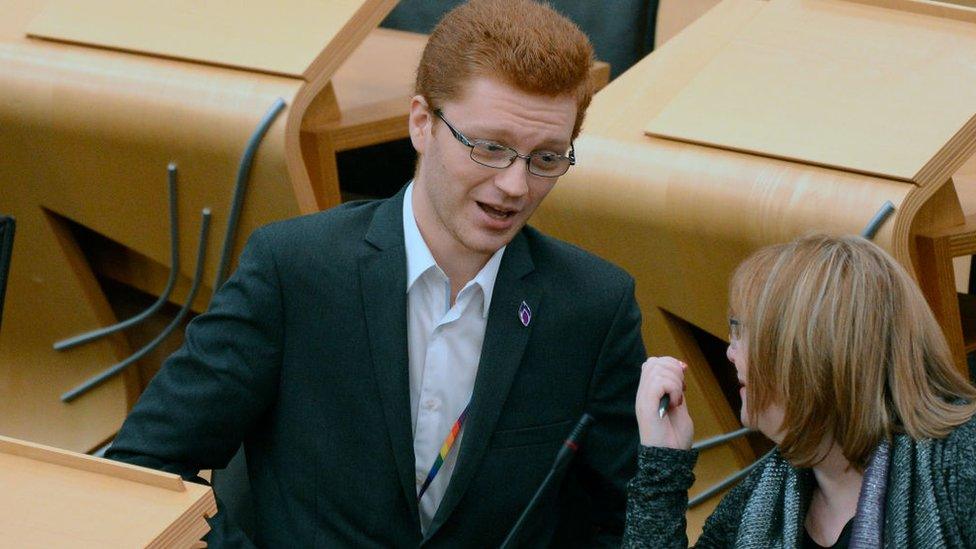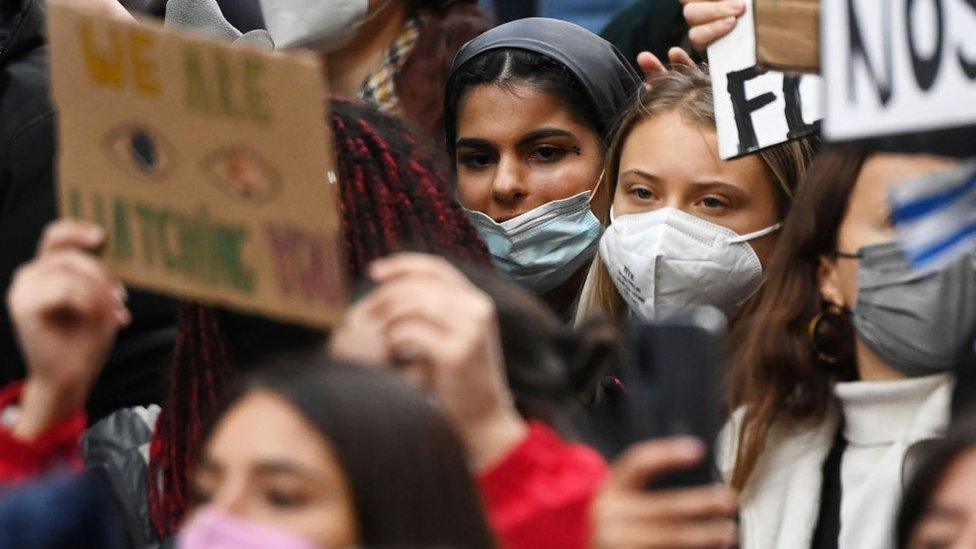I'm not too young to stand for election
- Published

Sophie Traynor says she does not lack life experience
Sophie Traynor is frustrated by the current attitudes to young people standing as candidates in elections.
The 25-year-old thinks it is ridiculous to assume her generation do not have enough experience to hold elected office.
Sophie, an SNP member, is vying to become a councillor in West Dunbartonshire in May's local elections but she says the abuse young candidates get doesn't make it appealing to get more involved.
"I don't think I've spoken to a young person who is considering standing who hasn't had doubts because they're young, or hasn't experienced some form of abuse," she says.
Sophie's been challenged about her credentials when knocking doors for other candidates in the past.
But she points out that she has grown up during two recessions and Brexit so it's "clearly not true" to say she lacks life experience.
"Democracy needs to be representative of the people," she says.
"How can decisions be made without young people?"

Lib Dem Joe McCauley is hoping to get elected in May.
It is a frustration shared by 30-year-old Lib Dem Joe McCauley, who is also hoping to get elected in May, in Glasgow.
"Even though it's 2022 people still have in mind that they want to perhaps have an older, white male as a go-to person". He says this attitude "terrifies" him.
"I've got a background: I'm LGBT, I'm also disabled, so where do I fit in?"
Following the last set of local elections in 2017, a survey of Scottish councillors (in which a third responded) suggested their average age was 53. Only 6% were under the age of 30.
The Scottish Parliament has become slightly younger in recent years, with the 2021 election bringing the average age of an MSP down from 51 to 49.

Meghan Gallacher from the Scottish Conservatives was elected in her 20s last year
Meghan Gallacher from the Scottish Conservatives was part of this shift. She was elected last year as an MSP for the Central Scotland region while still in her 20s. Before that she was a councillor in Motherwell for four years.
She insists it is "complete nonsense" to say younger people don't have the experience to hold office, and adds that they bring "different ideas" to the table.
Though she stresses it has not always been straightforward.
She says that at points there's been "screeds of abuse" to cope with from people online.

Scottish Green MSP Ross Greer laments the "extensive online abuse" that comes with the job
Scottish Green MSP Ross Greer doesn't tend to agree with the Conservatives on much but he also laments the "extensive online abuse" that comes with the job.
He is passionate about getting younger candidates to run but feels a responsibility to tell them that it is not always an overwhelmingly positive experience.
Elected at just 21 in 2016, he ran in the first Scottish election in which he was old enough to vote.
Did he ever doubt his qualifications? Ross says "experience" and "age" are different.
He cites time as a youth worker and involvement in his local church as providing him with experience despite his age.
And he stresses that politicians in their 20s bring a different perspective.
"My generation's experience of housing, of education, of attitudes towards LGBT rights, the climate crisis, are distinctively different," he says. "There are big generational differences there."
So if young people have a positive contribution to bring, why are the underrepresented?

Greta Thunberg was among young people in Glasgow calling for action on climate change
Dr Alistair Clark, from Newcastle University, specialises in political participation. He explains that young people aren't apathetic but need more education about how the system works.
He says young people are as interested in politics and as active in politics as other age groups but tend to get involved in other ways, such as campaigning with pressure groups.
It was only a few months ago that thousands of young Scots - and Greta Thunberg - took to the streets of Glasgow to call for climate action.
Dr Clark says the onus is on political parties to put up young candidates, as that is the most effective way to increase their representation. He calls for far more education about how the system works.
With local elections just a few months away, there is an opening for younger Scots to grasp the opportunity to hold political office.
Will we see the average age come down? It's hard to say at this point but we should get an answer once the votes are counted.
The Scottish government is inviting candidates to fill in a questionnaire outlining their characteristics and living situation before the election.
This will help to paint a picture of how well our politicians reflect those who elect them.